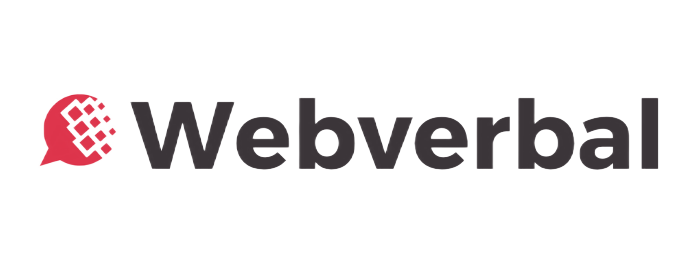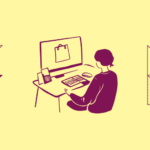Table Of Content
- It was 2:30 a.m.
- Why Founders Overthink More Than Anyone Else
- The Dark Side of Overthinking
- How I Know When I’m Overthinking
- My Personal Playbook to Stop the Spiral
- I Journal My Thoughts
- I Meditate, Even for Five Minutes
- I Talk to My Inner Circle
- I Limit Information Overload
- I Force Action Over Perfection
- I Remind Myself of My Bigger Why
- The Indian Twist: Why We Overthink Even More
- The Silver Lining of Being an Overthinker
- My Words to Fellow Founders
- FAQs
- How do entrepreneurs stop overthinking?
- Why do founders struggle with anxiety?
- Can meditation help with business stress?
- What’s the mental health cost of being a founder?
It was 2:30 a.m.
My laptop was shut. My phone was silent.
But my mind was roaring like a freight train.
Should I pivot Classystreet’s business model?
Was Mybrandpitch too ambitious for the current Indian market?
Had I wasted years chasing dreams that might never work out?
What if I failed — and my parents one day asked me why I’d risked it all?
That night, overthinking nearly broke me.
I sat on the edge of my bed, staring into the darkness, feeling the weight of decisions no one else could truly understand.
Because here’s the truth no one tells you when you become a founder:
Overthinking doesn’t just happen occasionally. For many of us, it’s a constant background hum.
Over the years, I’ve learned to spot it, wrestle it, and sometimes — gently talk it down.
This is my playbook.
Why Founders Overthink More Than Anyone Else
Overthinking is not some character flaw. It’s almost inevitable when you’re a founder.
Because our reality looks like this:
- Every decision feels existential.
A wrong pivot can sink your company. A late product launch can open doors for competitors. - We carry other people’s livelihoods.
Team members. Artisans. Vendors. Families connected to our choices. - We live with uncertainty 24/7.
No paycheck comfort. No guarantees. - We’re deeply invested emotionally.
Businesses aren’t just businesses for us. They’re pieces of our identity.
For me, overthinking came alive during Classystreet’s toughest periods:
- When COVID hit and my artisan partners called me in tears, worried their sarees wouldn’t sell.
- When I debated shutting parts of the business to stay afloat.
- When launching Mybrandpitch felt both thrilling and terrifying.
In those moments, I wasn’t just running numbers. I was replaying every scenario in my head — over and over again.
The Dark Side of Overthinking
I used to tell myself that overthinking meant I cared. That it made me thorough.
But there’s a point where thought becomes torture.
Overthinking costs us:
- Sleep.
Nights blur into anxiety. Mornings start with fatigue. - Creativity.
Fresh ideas dry up when your brain is stuck in loops. - Courage.
Action becomes paralyzed because nothing ever feels “ready enough.” - Relationships.
We’re physically present with family, but our minds are miles away. - Health.
Stress tightens the chest. Raises the blood pressure.
I’ve had days where I stared at the same email draft for three hours, rewriting a single sentence because I was terrified it might be misinterpreted.
That’s when I knew I needed help — from myself.
How I Know When I’m Overthinking
These days, I’ve become better at spotting my own warning signs:
- Restless sleep, waking at 3 a.m. with racing thoughts
- Re-reading the same document twenty times
- Writing and deleting social posts because I “might offend someone”
- Chest tightness that feels like a physical weight
- Feeling the need to seek endless reassurance
Once I recognize these patterns, I know it’s time to deploy my playbook.
My Personal Playbook to Stop the Spiral
Here’s what works for me. It’s not foolproof. But it’s helped me breathe again.
I Journal My Thoughts
My mind is often chaos. Journaling turns chaos into clarity.
When COVID hit, I wrote down my deepest fear:
“What if Classystreet fails, and I can’t pay the artisans who trusted me?”
Seeing it in black and white stripped it of its monstrous power.
Journaling helps me separate facts from fears.
Often, the monster in my head becomes manageable once I’ve written it down.
I Meditate, Even for Five Minutes
I used to believe meditation was only for monks on Himalayan peaks.
Then I started practicing stillness — sometimes even while looking at Budharaja mountain, my personal symbol of calmness.
Meditation doesn’t erase my problems. But it stops them from swallowing me whole.
“Even five minutes of silence can pull me back from the edge of spiraling thoughts.”
I Talk to My Inner Circle
There’s immense power in speaking your fears out loud.
I’m lucky to have people — my spouse, close friends, mentors — who know the real me.
Once, during a Mybrandpitch planning phase, I called a close friend and said:
“I’m afraid nobody will care about my platform. That it’s all in my head.”
He replied:
“Your worst-case scenario is still better than doing nothing and regretting it forever.”
Sometimes, one honest conversation slices through days of mental noise.
I Limit Information Overload
The internet is both blessing and curse.
I used to binge-read every startup failure story, every growth hack, every thread about “how to build an eight-figure business.”
All it did was fuel my anxiety.
Now, I consciously limit my inputs. I focus on my journey — not the highlight reels of others.
I Force Action Over Perfection
When my brain loops in circles, the only escape is motion.
- I send the email draft, imperfect as it is.
- I publish the LinkedIn post even if it feels vulnerable.
- I share Mybrandpitch ideas before they’re “perfect.”
“Action isn’t always right. But inaction is always wrong.”
I Remind Myself of My Bigger Why
Whenever I’m drowning in worry, I return to a single question:
“Why did I start this in the first place?”
I started Classystreet to preserve Indian artisanship.
I’m building Mybrandpitch so unheard founders can be seen and funded.
Remembering this mission silences many small fears. It reminds me that my work is bigger than my anxieties.
The Indian Twist: Why We Overthink Even More
Being an entrepreneur in India brings unique triggers:
- Family expectations: “Why don’t you do a safe government job?”
- Social image: “What if people say I failed?”
- Financial responsibility in joint families
- Lack of safe spaces to discuss mental health
We rarely talk openly about anxiety or fear in business circles. That makes overthinking feel even more isolating.
The Silver Lining of Being an Overthinker
Here’s the truth I’ve learned:
Overthinking is not entirely a curse.
It means we care. It makes us thorough. It helps us see risks others might miss.
When harnessed, it becomes:
- Strategic thinking
- Empathy for customers and teams
- Creativity in problem-solving
“The key is to keep thinking as a servant — not let it become the master.”
My Words to Fellow Founders
If you’re reading this and recognizing yourself in my words — you’re not weak.
Overthinking is the cost we pay for caring deeply about our work, our people, and our dreams.
But we can’t let it become our prison.
Start small:
- Write it down.
- Sit in silence for five minutes.
- Call someone who knows your real story.
- Take one imperfect step forward.
You’re not alone.
And remember:
“A founder’s mind is a storm. But inside the storm, there’s always a calm center. Find yours.”
— Debansh
FAQs
How do entrepreneurs stop overthinking?
- Journaling
- Meditation
- Talking to trusted people
- Limiting information overload
- Taking small actions quickly
Why do founders struggle with anxiety?
Because their decisions carry high stakes — financially, emotionally, and socially.
Can meditation help with business stress?
Absolutely. Even five minutes daily can calm your nervous system and bring clarity.
What’s the mental health cost of being a founder?
Long hours, uncertainty, social isolation, and fear of failure can take a significant toll. Recognizing it is the first step toward managing it.




